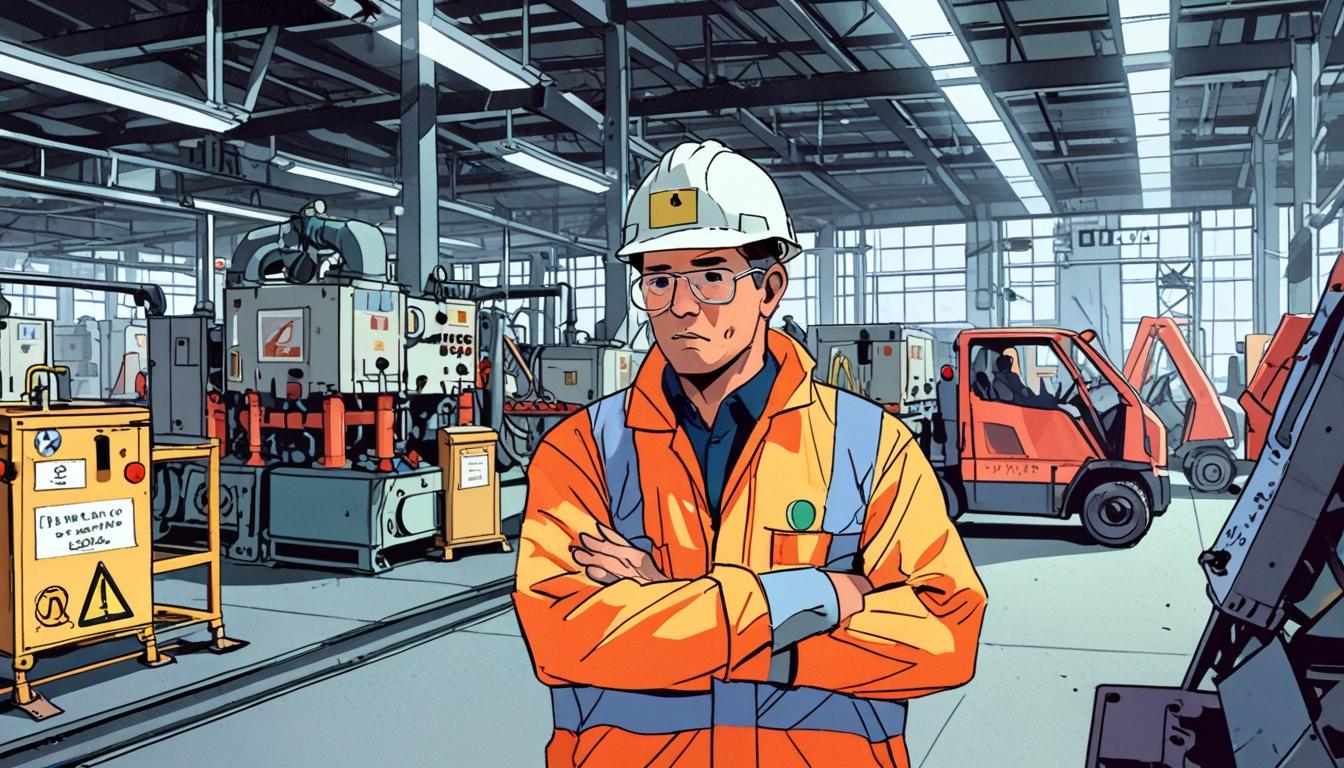Concerns Unveiled: Safety Issues at BlueOval SK Battery Park
In a significant development for Kentucky's burgeoning electric vehicle industry, the BlueOval SK Battery Park, a joint venture between Ford Motor Co. and SK On, has come under scrutiny following alarming safety reports from workers. The $5.8 billion facility, designed to produce electric vehicle batteries, is hailed as a major economic project for Hardin County, promising to create 5,000 jobs. However, a multitude of safety concerns has emerged, threatening not just employee welfare but also the project's ambitious goals.
Amanda Johnson, the inaugural production supervisor at BlueOval SK, has articulated her dismay over the safety issues plaguing the facility. Describing the role as an “answered prayer” for a single mother seeking financial security, Johnson says her experience soured significantly after she was terminated in January 2024. She believes her dismissal was a retaliatory response to her advocacy for improved safety measures and her vocal opposition to management's anti-union stance. Presently navigating legal channels, including the National Labor Relations Board and the Equal Employment Opportunity Commission, Johnson is primarily concerned about the safety of her former colleagues, many of whom continue to report hazardous working conditions.
Investigations have revealed that employees at BlueOval SK have filed numerous complaints related to workplace safety, prompting the Kentucky labor department to open multiple inquiries into the plant’s operations. Reports from the Courier Journal reveal serious shortfalls including inadequate emergency procedures, persistent mold contamination, and instances of respiratory illnesses among personnel. Concerns about mishandling hazardous chemicals like n-Methylpyrrolidone (NMP), linked to severe health risks, have been raised repeatedly over fear of toxic exposure leading to long-term health ramifications.
The environmental oversight is compounded by revelations of a bat-infested training facility and blocked emergency exit doors, which further exacerbate the potential for workplace injuries. Such violations echo similar safety lapses observed at another SK facility, where OSHA recently fined SK Battery America over $77,000 for serious safety infractions. These included deficiencies in employee training for emergencies and inadequate protective measures against hazardous substances.
While BlueOval SK vehemently denies these claims, asserting adherence to stringent safety regulations and procedures, the testimonies of employees paint a different picture. Workers have described an atmosphere where fear of retaliation deters them from reporting hazards. One employee, wanting to remain anonymous, expressed hesitance to raise concerns over unsafe conditions, stating, “If you want to stay employed, you do what you're told.”
The Kentucky Education and Labor Cabinet, responding to the growing list of complaints, has mentioned that the scale of the project naturally entails an array of occupational health and safety challenges. Governor Andy Beshear has publicly praised the project, positioning it as a key driver for employment and economic growth in the state. Despite this optimism, ongoing investigations and reported illnesses among the workforce present a stark contrast to the projected benefits.
A segment of the workforce’s sentiment mirrors a growing frustration; many feel the promising prospect of participating in the “electric vehicle revolution” has been overshadowed by health concerns and inadequate safety measures. Employees like Bill Wilmoth, who works in formation production, have felt the initial excitement of a new industry quickly diminish amidst rising health issues. Wilmoth reported respiratory problems that he attributes to mold exposure in the plant, reflecting broader fears shared by his colleagues.
Evidently, unresolved issues surrounding safety at BlueOval SK raise critical questions not only about worker wellbeing but also about the broader implications for the electric vehicle sector in Kentucky. The juxtaposition of economic aspiration and potential workplace hazards illustrates the complexity of rapidly advancing new industries where oversight and employee safety must go hand in hand.
As efforts to unionise gain momentum among the workers, bolstered by escalating safety concerns, the future of BlueOval SK hangs in the balance. The looming question remains: Will the prospect of union representation drive meaningful changes that prioritise health and safety, or will it be overshadowed by economic imperatives? In a state that has staked much on the success of electric vehicles, the ability to reconciliate employee rights with corporate objectives will be essential in crafting a sustainable future for all involved.
Reference Map:
- Paragraph 1 – [1]
- Paragraph 2 – [1]
- Paragraph 3 – [1], [2]
- Paragraph 4 – [1], [3]
- Paragraph 5 – [1], [4]
- Paragraph 6 – [1], [6]
- Paragraph 7 – [1], [5]
- Paragraph 8 – [1]
- Paragraph 9 – [1], [2], [6]
- Paragraph 10 – [1], [2]
- Paragraph 11 – [1]
- Paragraph 12 – [1], [3]
Source: Noah Wire Services
